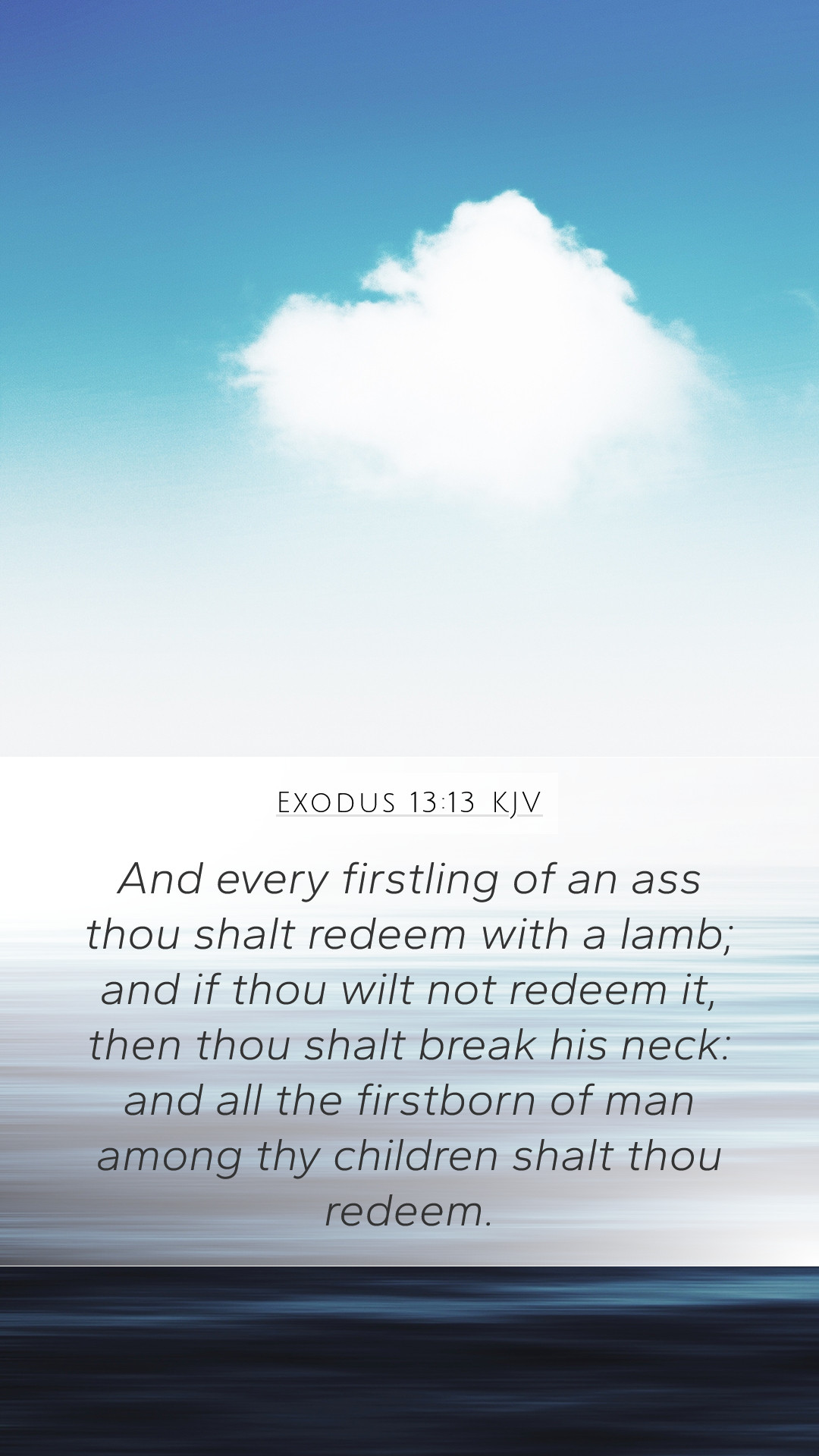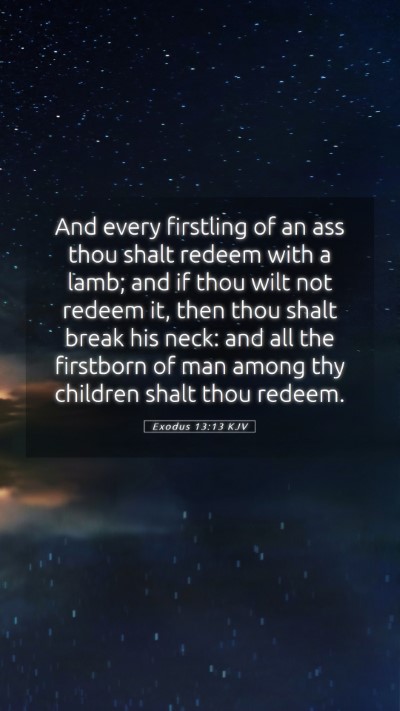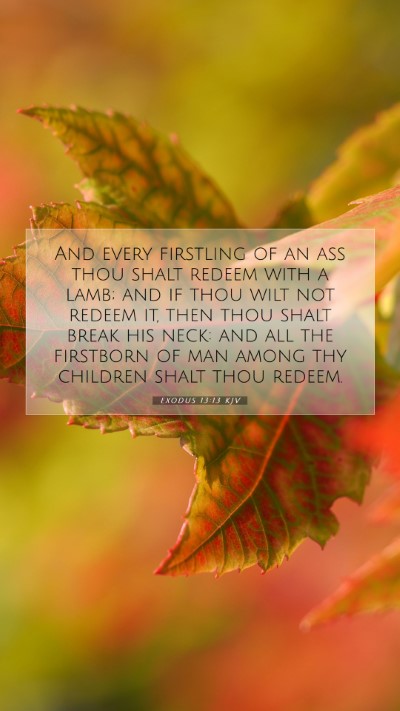Bible Verse Meaning for Exodus 13:13
Exodus 13:13 states: "And every firstling of an ass thou shalt redeem with a lamb: and if thou wilt not redeem it, then thou shalt break his neck: and all the firstborn of man among thy children shalt thou redeem." This verse bears profound meanings that are explored through various biblical commentaries, shedding light on its significance and practical applications in our lives today.
Bible Verse Commentary
This verse highlights the importance of redemption, particularly in the context of the firstborn. Here’s a breakdown of its components:
- Redemption of the firstborn: The firstborn belongs to God, and redemption signifies how they must be 'bought back' through sacrifice.
- Symbolism of the lamb: The reference to redeeming an ass with a lamb points to the sacrificial system and foreshadows the ultimate sacrifice of Jesus Christ.
- Consequences of non-redemption: The breaking of the neck signifies the seriousness of failing to redeem what belongs to God, which may allude to spiritual consequences as well.
- Human application: The verse emphasizes the need for redemption in our spiritual lives, where every believer is called to understand their need for Christ's sacrifice.
Exegesis of Exodus 13:13
According to Matthew Henry, this verse serves as a reminder of God's claim on the firstborn, which represents His ownership of every living being as the Creator. The need for redemption showcases God's mercy and the foreshadowing of Christ's coming atonement.
Albert Barnes emphasizes the broader context of God's deliverance of Israel from Egypt. The instruction given here is part of a larger ordinance that establishes Israel's identity as God's firstborn nation. It captures the essence of remembering God's acts of deliverance and His commandments.
Adam Clarke elaborates on the practical implications of the verse. He explains that the firstling of an ass, considered unclean, needed to be saved from destruction through the offering of a clean substitute—a lamb. This illustrates God's grace extending even to those deemed unworthy.
Biblical Significance
This passage illustrates profound theological principles. The biblical understanding of redemption is paramount; it teaches us that everyone and everything ultimately belongs to God and that our response is to acknowledge that ownership through acts of obedience and sacrifice.
Furthermore, this verse connects with several key themes throughout Scripture, such as:
- The firstborn's significance: Several passages discuss the idea of the firstborn being special to God (Exodus 22:29, Numbers 3:13).
- Redemption through sacrifice: The concept is echoed in Leviticus 14:1-7 regarding the purification sacrifices, reflecting the necessity of interventions for the unclean.
- The essence of obedience: Deuteronomy 15:19-23 reiterates the requirements concerning firstborn animals, demonstrating a consistent theme of honoring God's commandments.
Application in Daily Life
To connect this to daily life, understanding this verse can be paramount for anyone seeking to grasp Bible verse explanations and apply Scripture analysis effectively. Responding to God’s claim on our lives may prompt one to reflect on personal sacrifices. Here are some applications:
- Reflection on priorities: Assess how we honor God in our lives and what we dedicate to Him.
- Practice redemption: Seek opportunities to 'redeem' aspects of life that stray from God’s will.
- Engagement in Bible study: Use this verse as a foundation for prayer and study, connecting it with other passages regarding redemption and sacrifice.
Conclusion
In summary, Exodus 13:13 serves as a pivotal verse for understanding the principles of redemption within the scriptural narrative. Through the insights provided by various commentaries, one can explore deeper meanings and applications, enriching their journey through Bible study resources and community discussions in Bible study groups. This verse not only instructs on the redemptive processes during biblical times but also calls us to evaluate our personal lives in light of God's ownership and grace.


